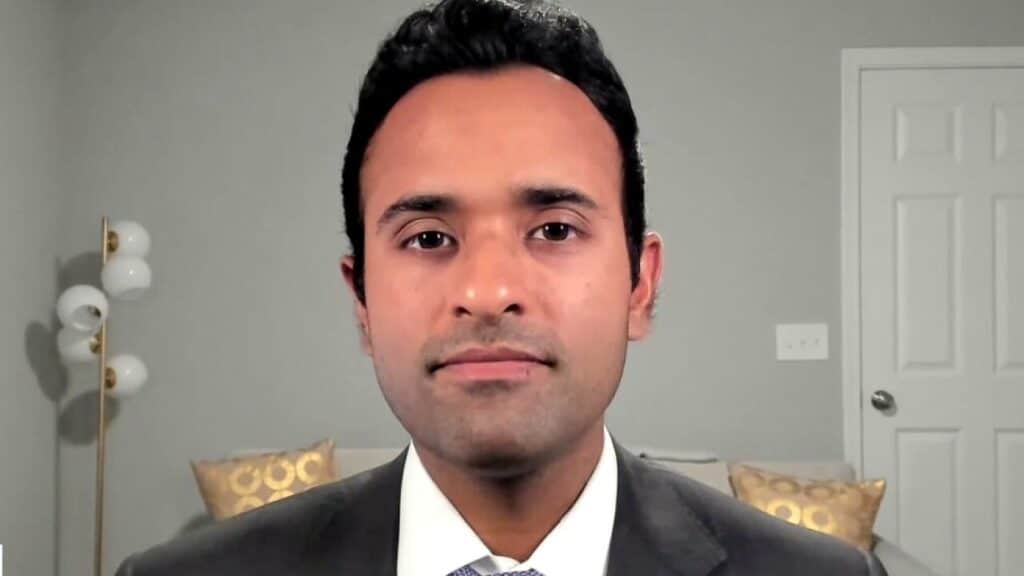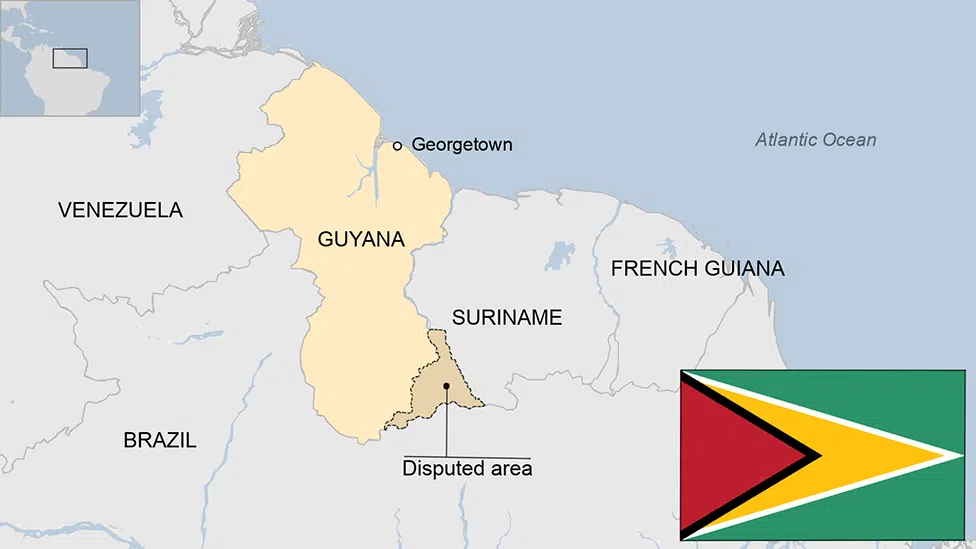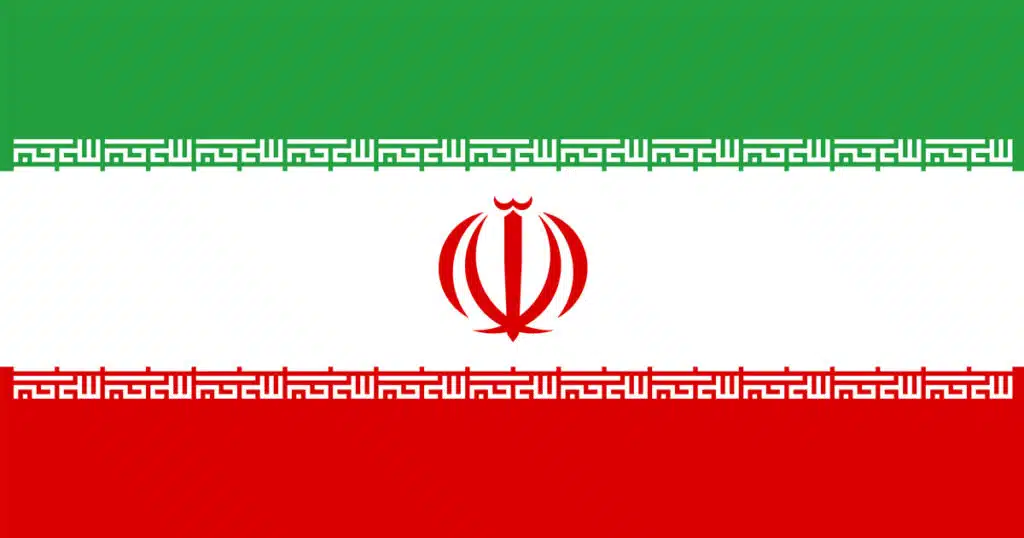
Vivek Ramaswamy’s Carefully Crafted Image Takes a Hit
Perhaps the most interesting development in the early 2024 election cycle has been the emergence of Vivek Ramaswamy. The young, bold entrepreneur is a master communicator with a compelling style. He has chosen an approach that wisely steers clear of confrontation with Trump, which has endeared him to the base and catapulted his candidacy into second place in a recent Cygnal poll.
The most intriguing aspect of Ramaswamy’s campaign is his ongoing attempt to reach out to Gen Z and millennial voters. Preaching hope to generations mired in malaise and futility, Ramaswamy has moved the needle, especially with young, college educated Republican voters.
He favors dialogue over confrontation, and even when provoked, Vivek maintains an air of civility that tends to defuse confrontational situations. Recently, he invited a protester on stage, and by the time the interaction ended, the woman’s anger had evaporated, and she was calmly and proudly talking about her children. In another encounter, he engaged with an LGBTQIA+ protestor, who left the conversation obviously befuddled and bewildered by his kindness and well-considered responses to her irrational complaints.
Cracks in the Armor
It’s safe to say that Ramaswamy has gained the attention of the left’s political hit squad, which is probably digging deep for dirt that would hopefully destroy him if he ever became a real threat. If they don’t need to tear him down in this election cycle, they’ll save it for the next.
Yet, it’s Ramaswamy’s own curious words that are raising eyebrows within Republican ranks and creating a stir, and for the first time, providing an opening for his competitors to exploit. In two instances, both related to foreign policy, Ramaswamy offered specific proposals regarding Ukraine and Taiwan.
When asked how he would end the war in Ukraine, Ramaswamy outlined a plan that would allow Russia to keep the land they have illegally seized, including the Crimean peninsula, Donetsk, Kherson, Luhansk and Zaporizhzhia oblasts. Ramaswamy would also provide guarantees that Ukraine will never join NATO. In return, he expects Russia to end its partnership with China and remove all nuclear weapons from Kaliningrad. All military and economic assistance to Ukraine would be suspended for a period of 72 hours while Putin decides whether to take the deal.
While Ramaswamy expects Ukraine to continue fighting even if Russia agrees to terms, he counts on the fact that a lack of NATO support would most assuredly draw Zelinsky to the negotiating table. In the event that other NATO countries continue to support Ukraine, Ramaswamy would call U.S. continuing support for NATO into question.
While one can appreciate the honesty and candor in expressing such detail, Ramaswamy’s plan exhibits a degree of naivete that is difficult to ignore. Handing over the exact same regions the Russians demanded before the invasion began would lead critics (especially the neocons) to express their outrage at a war that cost of over 250,000 lives and $113 billion in military aid from the U.S. and accomplished absolutely nothing from a U.S. and NATO perspective.
Ramaswamy’s plan also doesn’t take into consideration the fallout on the global stage for another U.S. international military embarrassment on the heels of the humiliating withdrawal from Afghanistan. Imagine the mainstream media’s spin on the Ukraine war if Zelinsky did continue fighting. As the territorial and human losses mounted, a President Ramaswamy would be eviscerated on a daily basis for abandoning Ukraine to the Stalinist Russians under Putin. Every story of war atrocities would be banner headline news.
While Ramaswamy’s Ukraine strategy may be sound policy pre-invasion, it is horribly flawed when examined through the lens of the current circumstances. We are in the quagmire, and there are no easy answers, but one thing is certain: Ramaswamy’s critics will have a field day with his cut and run tactical proposals.
However, the most curious and puzzling of Ramaswamy’s recent statements revolve around the Taiwan-China situation. Appearing on the Hugh Hewitt show, Ramaswamy was asked if he would defend Taiwan if attacked by China.
“We’ll take destroyers from the group we have in Japan, take one per month, move it through that Taiwan Strait. … This is something that actually will send a strong signal to China. They will not take the risk of making that move, especially if they know that the U.S. is only biding our time until we have semiconductor independence. That’s where strategic clarity actually helps us.”
He continued…
“China will have no reason to aggress towards Taiwan between now and the end of my first term in 2028 if we show we’re serious about it, but by being strategically clear that commitment changes after we’ve achieved semiconductor independence. Now put yourself in [Chinese President] Xi Jinping’s shoes. He has no interest in taking that risk… that commitment is only as far as 2028, by which point I will have led the United States of America to achieve semiconductor independence. And we will not take the risk of war that risks American lives.”
So, the takeaway is that President Ramaswamy would communicate to Xi Jinping that he must delay invading Taiwan until 2028, at which time we will be semiconductor independent. At that point, apparently, Taiwan would be there for China’s taking with the blessing of the United States and President Ramaswamy.
The disastrous consequences of such a policy cannot be overstated. Imagine the devastation to Taiwan and its economy as the clock ticked down to its inevitable date with invasion. How would the stock and bond markets react to the knowledge that Taiwan was four years away from obliteration? How would this pronouncement impact Xi’s hegemonistic desire to control all of southeast Asia once he knew there was no line in the sand that would compel America to enter into a conflict? If we won’t defend Taiwan, why would we defend the Philippines or Japan?
What kind of message would Ramaswamy’s Taiwan policy send to America’s allies, who are already questioning our strength and resolve, if we abandoned a quasi-ally in exchange for computer chip security? If Taiwan was ceded to China without even an attempt to help her defend herself, what does that say about America’s support for smaller democracies that are the target of larger predatory totalitarian regimes?
Vivek Ramaswamy has raised questions related to his understanding of the complexities of foreign policy. He is also triggering some alarm bells that suggest he might be a pacifist at heart, which may be the only thing worse than a neocon.
Look, no one wants to wade into another one of these forever wars, as the quagmire in Ukraine demonstrates, but the situation in Taiwan is far different. The ramifications of allowing China to invade Taiwan without resistance from the U.S. would have severe consequences that would upend the global power structure for decades, if not forever. Abandoning Taiwan is a horrible idea, and I hope as Vivek reflects on the subject, he recognizes the strategic and economic importance of supporting Taiwan, especially now, in hopes of preventing a Chinese invasion in the future, whether that’s 2028 or beyond.



